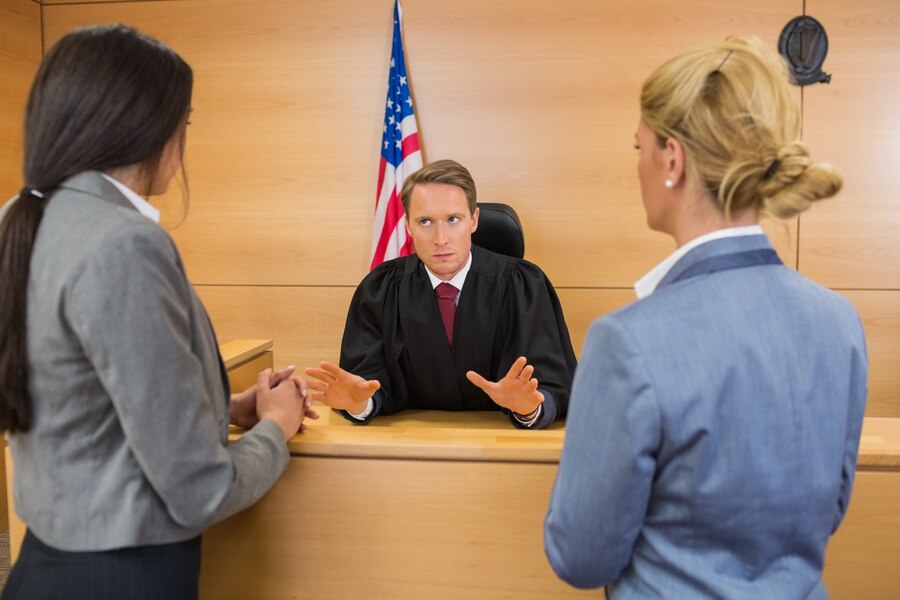
Habeas corpus, meaning “you shall have the body” in Latin, is a legal action that allows individuals to challenge the legality of their detention or imprisonment. This principle serves as a fundamental safeguard against arbitrary or unlawful detention by the government, ensuring that no one is deprived of their liberty without due process of law.
a. Constitutional Basis
In the United States, the right to habeas corpus is enshrined in the Constitution, specifically in Article I, Section 9, which states that the privilege of the writ of habeas corpus shall not be suspended unless in cases of rebellion or invasion. This constitutional guarantee underscores the importance of habeas corpus as a tool for protecting individual freedoms.
b. Application in Virginia
In Virginia, the habeas corpus process is governed by both state and federal law. Individuals detained within the state have the right to file a habeas corpus petition to challenge the legality of their detention, whether it occurs at the state or federal level.
Steps Involved in the Habeas Corpus Process
Understanding the steps involved in the habeas corpus process is essential for anyone seeking to challenge their detention in Virginia. Here is an overview of the key stages:
1. Filing the Petition
The habeas corpus process begins with the filing of a petition in the appropriate court. The petition must clearly state the grounds for challenging the detention and provide supporting evidence. It is crucial to file the petition in the correct jurisdiction, as this will determine which court has the authority to hear the case.
- State Court: If the detention is related to a state criminal conviction or other state matters, the petition is typically filed in the Virginia Circuit Court where the original conviction or detention occurred.
- Federal Court: For federal cases or when challenging detention under federal authority, the petition is filed in the appropriate U.S. District Court.
2. Government Response
Once the petition is filed, the government (represented by the state’s attorney general or federal prosecutors) will have an opportunity to respond. The government’s response will typically argue that the detention is lawful and provide evidence to support this claim. The response may also raise procedural defenses, such as arguing that the petition was filed too late or that the petitioner has not exhausted other legal remedies.
3. Court Hearing
After the government files its response, the court may schedule a hearing to consider the arguments from both sides. During the hearing:
- Presentation of Evidence: Both the petitioner (through their attorney) and the government will present evidence and legal arguments. The petitioner’s attorney will focus on demonstrating why the detention is unlawful, while the government will defend the legality of the detention.
- Cross-Examination: Witnesses may be called, and both sides will have the opportunity to cross-examine these witnesses to challenge the credibility of their testimony.
4. Court Decision
Following the hearing, the court will issue a decision on the habeas corpus petition. The court may:
- Grant the Petition: If the court finds that the detention is unlawful, it may order the petitioner’s release or grant other relief, such as a new trial or sentencing hearing.
- Deny the Petition: If the court determines that the detention is lawful, it will deny the petition. In this case, the petitioner may have the option to appeal the decision to a higher court.
5. Appeals Process
If the habeas corpus petition is denied, the petitioner may appeal the decision to a higher court. The appeals process involves:
- Filing a Notice of Appeal: The petitioner must file a notice of appeal within a specified timeframe, usually within 30 days of the court’s decision.
- Appellate Briefing: Both the petitioner and the government will submit written briefs to the appellate court, outlining their legal arguments.
- Appellate Court Decision: The appellate court will review the briefs and may hold oral arguments before issuing a decision. The appellate court may affirm the lower court’s decision, reverse it, or remand the case for further proceedings.
Legal Standards in Habeas Corpus Cases
The success of a habeas corpus petition depends on meeting specific legal standards. These standards vary depending on whether the case is being heard in state or federal court.
1. State Habeas Corpus Petitions
In Virginia, state habeas corpus petitions must demonstrate that the petitioner’s detention violates state law or the U.S. Constitution. Common grounds for state habeas petitions include:
- Ineffective Assistance of Counsel: Arguing that the petitioner’s trial attorney provided inadequate representation, leading to a wrongful conviction.
- Due Process Violations: Claiming that the petitioner’s due process rights were violated during the trial or sentencing process.
- Newly Discovered Evidence: Presenting new evidence that was not available at the time of the original trial and could have resulted in a different outcome.
2. Federal Habeas Corpus Petitions
For federal habeas corpus petitions, the legal standards are often more stringent. Petitioners must typically show that:
- Constitutional Violations: The detention violates the U.S. Constitution, such as through a violation of the right to a fair trial or protection against double jeopardy.
- Exhaustion of State Remedies: Before filing a federal habeas corpus petition, the petitioner must exhaust all available state remedies, meaning they must first seek relief through state courts.
The Role of a Habeas Corpus Attorney in Virginia
Given the complexity of the habeas corpus process, having an experienced attorney is essential. A habeas corpus attorney in Virginia can provide invaluable assistance in several ways:
a. Case Evaluation
An attorney will begin by evaluating your case to determine whether you have valid grounds for a habeas corpus petition. This evaluation includes reviewing court records, trial transcripts, and any new evidence that may support your claim.
b. Petition Preparation and Filing
Preparing a habeas corpus petition requires meticulous attention to detail and a deep understanding of the legal issues involved. Your attorney will draft the petition, ensuring that it clearly articulates the legal grounds for challenging your detention and is filed in the appropriate court.
c. Legal Representation in Court
Your attorney will represent you in court, presenting your case and advocating for your release. This includes arguing legal points, cross-examining witnesses, and challenging the government’s evidence.
d. Navigating the Appeals Process
If your petition is denied, your attorney can guide you through the appeals process, helping you file an appeal and presenting your case to higher courts.
FAQs
Q1: What are the grounds for filing a habeas corpus petition in Virginia?
- A1: Common grounds include ineffective assistance of counsel, due process violations, newly discovered evidence, and constitutional violations. Each case is unique, so it’s essential to consult with an attorney to determine the specific grounds for your petition.
Q2: How long does the habeas corpus process take in Virginia?
- A2: The process can vary in length depending on the complexity of the case and the court’s schedule. It can take several months or even longer to reach a final decision.
Q3: Can I file a federal habeas corpus petition if my state petition is denied?
- A3: Yes, if your state habeas corpus petition is denied, you may file a federal habeas corpus petition, provided you have exhausted all available state remedies and meet the legal standards for a federal petition.
Q4: What is the difference between state and federal habeas corpus petitions?
- A4: State habeas corpus petitions challenge detentions under state law, while federal petitions challenge detentions under federal law or constitutional violations. Federal petitions generally have more stringent legal standards.
Q5: Do I need an attorney to file a habeas corpus petition?
- A5: While it is possible to file a habeas corpus petition without an attorney, the process is complex, and having an experienced attorney greatly increases your chances of success.
Conclusion
Navigating the habeas corpus process in Virginia requires a thorough understanding of legal principles, procedures, and the specific standards that apply to your case. Whether you are challenging a state or federal detention, the expertise of a habeas corpus attorney can make a significant difference in the outcome of your petition. By understanding the steps involved and the role of legal representation, you can better protect your rights and seek justice in the face of unlawful detention.
Read More
The Role of a Gynecologist in Reproductive Health and Wellness






